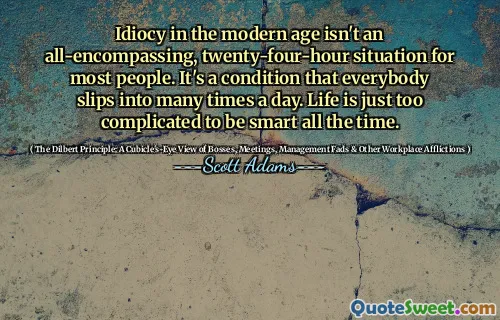More of your conversation would infect my brain.
In William Shakespeare's play "Coriolanus," the character expresses a profound reluctance to engage further in conversation, suggesting that the words would negatively influence his thoughts. This highlights a theme of the power of language and dialogue, showing that interactions can deeply affect one's mindset and emotions. The character's statement reflects a sense of disturbance or agitation that comes from too much discourse, suggesting a desire for solitude or a break from external influence. The quote captures the tension between public discourse and personal integrity. It suggests a conflict between the expectations of society to engage in conversation and the individual's need to protect their mental and emotional well-being. This idea resonates with many readers, emphasizing how overwhelming communication can be, especially in a political context where manipulation and rhetoric are prevalent. Hence, the character's reluctance is a valid response to avoid the potential corruption of his thoughts through excessive interaction.
In William Shakespeare's play "Coriolanus," the character expresses a profound reluctance to engage further in conversation, suggesting that the words would negatively influence his thoughts. This highlights a theme of the power of language and dialogue, showing that interactions can deeply affect one's mindset and emotions. The character's statement reflects a sense of disturbance or agitation that comes from too much discourse, suggesting a desire for solitude or a break from external influence.
The quote captures the tension between public discourse and personal integrity. It suggests a conflict between the expectations of society to engage in conversation and the individual's need to protect their mental and emotional well-being. This idea resonates with many readers, emphasizing how overwhelming communication can be, especially in a political context where manipulation and rhetoric are prevalent. Hence, the character's reluctance is a valid response to avoid the potential corruption of his thoughts through excessive interaction.





